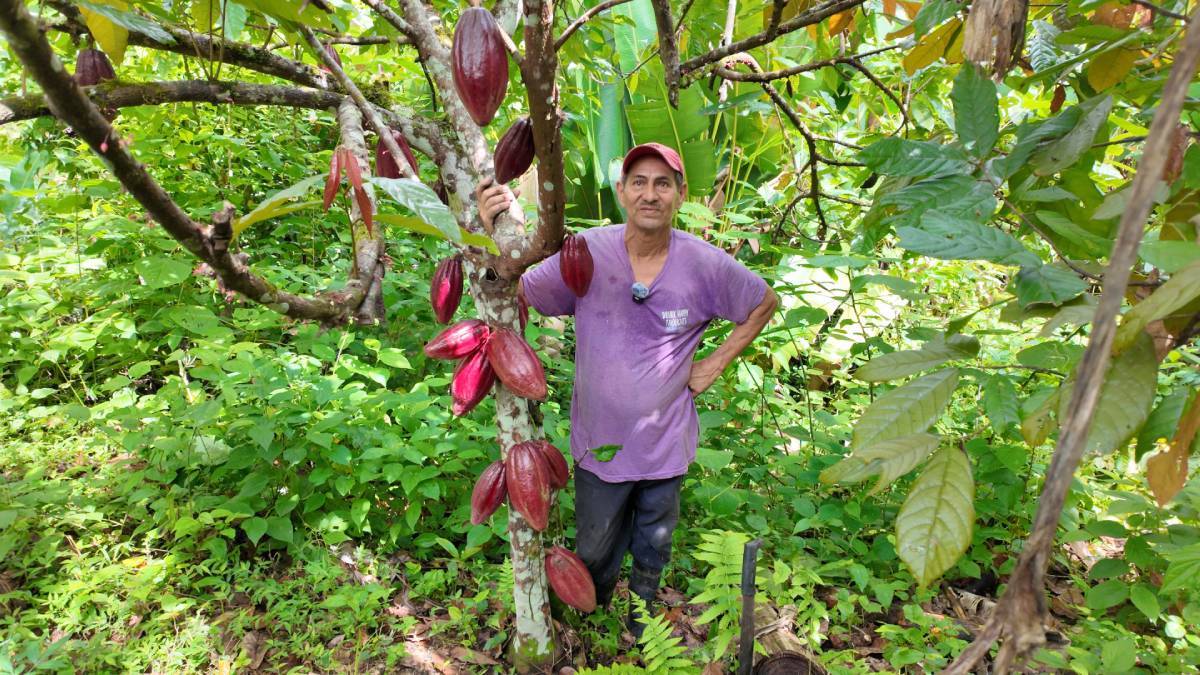Don Toñito, a lead farmer who has achieved outstanding results through the use of biochar.
What if agricultural waste could be transformed into a solution for more productive crops and a healthier planet? Producing and applying biochar, a charcoal made from organic waste like cocoa husks and pruning residues, is a regenerative farming practice. It simultaneously boosts farm productivity, improves soil structure, and sequesters carbon. Furthermore, it’s an accessible solution for small-scale producers.
After a year of research and successful pilot programmes in Nicaragua, we’re ready to scale its impact across Central America.
This initiative emerged from a strategic partnership with Ritter Sport, a leading cocoa company. After assessing the carbon footprint of its supply chain, Ritter Sport identified post-harvest residues, previously seen as waste, as a hidden source of emissions. Facing this reality, and given that Nicaraguan cocoa farmers rely largely on natural fertilization, a critical question arose: Why not turn this waste into biochar, improving soils while cutting emissions?
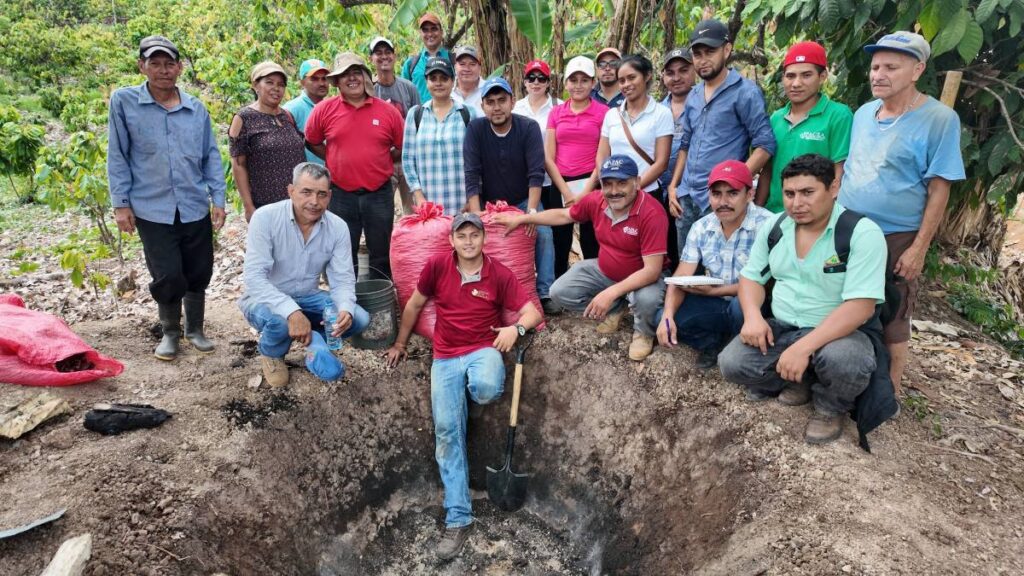
As the project to shape, field and lab studies confirmed that biochar not only captures carbon, but it also enhances soil fertility in agricultural systems already committed to sustainable practices. Today, with promising early results, this innovation aligns with our vision to scale solutions that increase farmers’ incomes, protect the environment, drive regenerative agriculture, and decarbonize agricultural supply chains.
Biochar is a unique solution
Solidaridad knows that biochar is more than a soil enhancer; it is a climate ally. Its porous structure retains water and nutrients, reduces soil acidity, and fosters beneficial microorganisms. Producing biochar uses waste products like cocoa husks and pruning residues, and this conversion of farm waste (once a source of greenhouse gases) into a valuable resource closes the loop on circular economies.
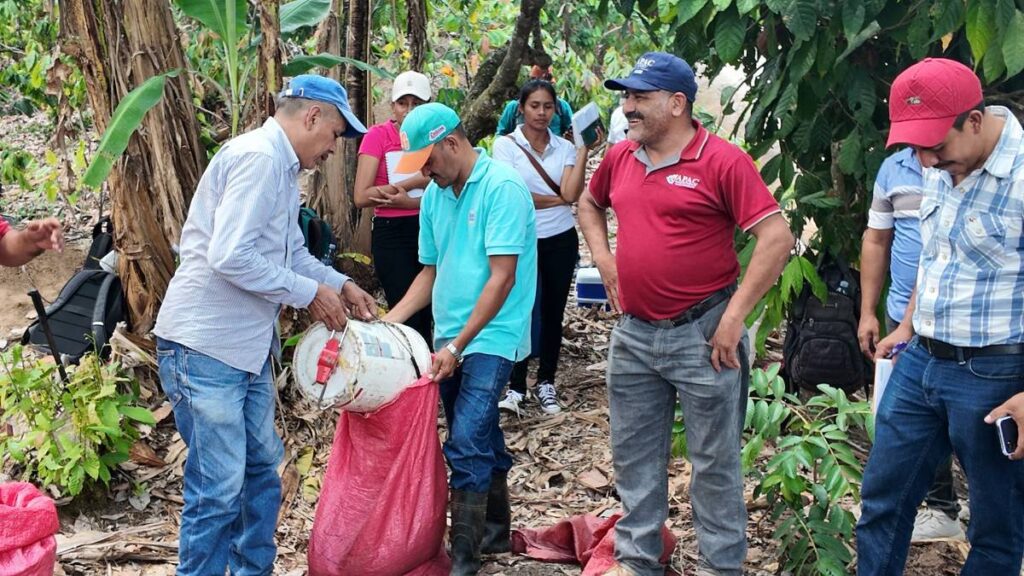
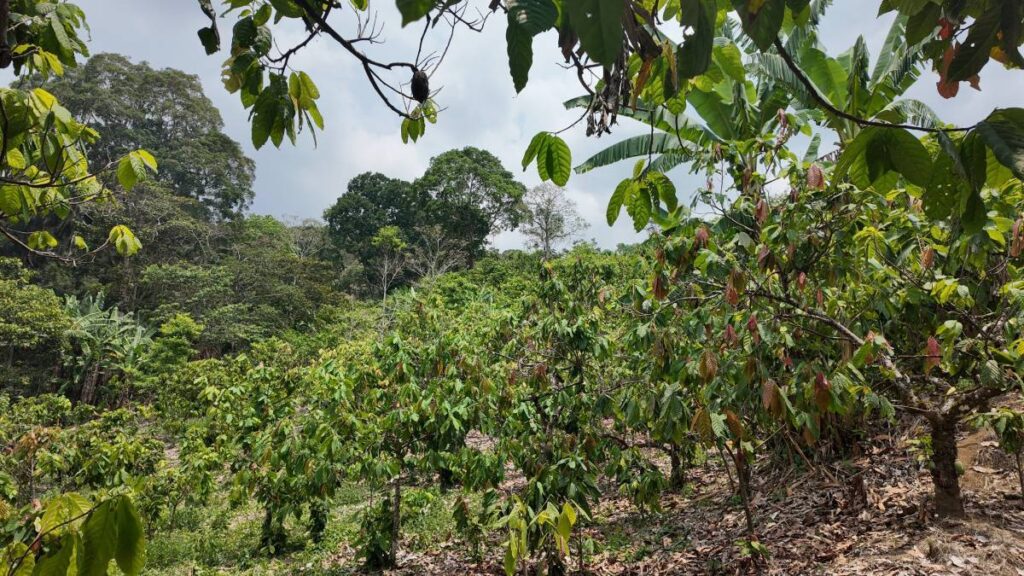
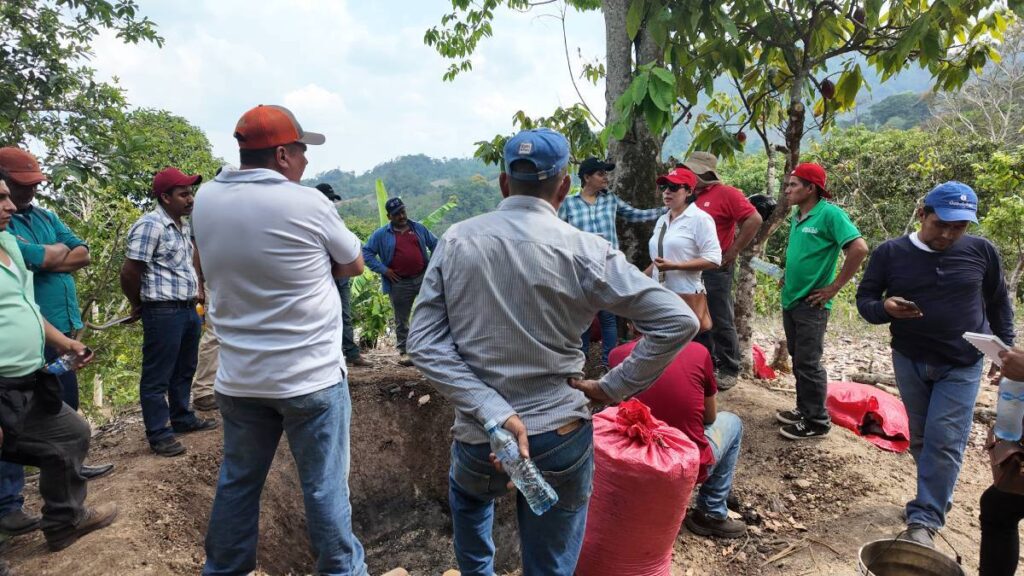
Preliminary findings highlight key insights:
- In plant nurseries, trials have demonstrated biochar’s benefits on early crop development, as treated cocoa seedlings exhibited stronger growth.
- In mature plantations (~15 years), there were observed improvements in moisture retention, along with potential short-term productivity gains. (Extended studies aim to assess biochar’s long-term impacts on cocoa yields.)
- Initial research estimates that applying 500 kg of biochar per hectare of cocoa in Nicaragua could reduce emissions by 1–2.5 tCO₂e per metric tonne of cocoa produced.
These advances have been documented through trials with five cooperatives (and their associated nurseries) and five producers. Don Toñito, a key partner farmer, has actively contributed with field measurements and observations. After just one year of biochar application, his records show a 10% yield increase in a previously abandoned plot, with the best results coming from its combination with mycorrhizae.
From science to the field: methodology and lessons
To ensure measurable, reportable, and verifiable (MRV) outcomes, Solidaridad Central America implemented a rigorous protocol during this initial phase. This included controlled production using the low-cost Kontiki method, tailored to smallholder farm conditions.
Additionally, soil analysis with lab tests confirmed the alkaline nature of cocoa-based biochar, and underscored the need for three critical assessments to ensure positive soil impact in agroforestry systems:
- Baseline soil analysis (pH, nutrients, organic matter)
- Biochar analysis (pH, nutrient retention, chemical properties)
- Post-application soil analysis (tracking pH, fertility, and soil health changes)
To counterbalance biochar’s alkalinity, pairing it with organic compost is recommended to boost soil resilience and productivity.
These combined steps are core to our MRV protocol that scientifically validates biochar’s agronomic and climate benefits.
In partnership with farmer cooperatives, La Flor de Dalia, Río de Agua Viva, Pacsa, and Cacaonica, Solidaridad Central America monitored biochar’s effects across crop development stages. These on-ground results and knowledge exchanges align with companies like Ritter Sport, which seek sustainable supply chains.
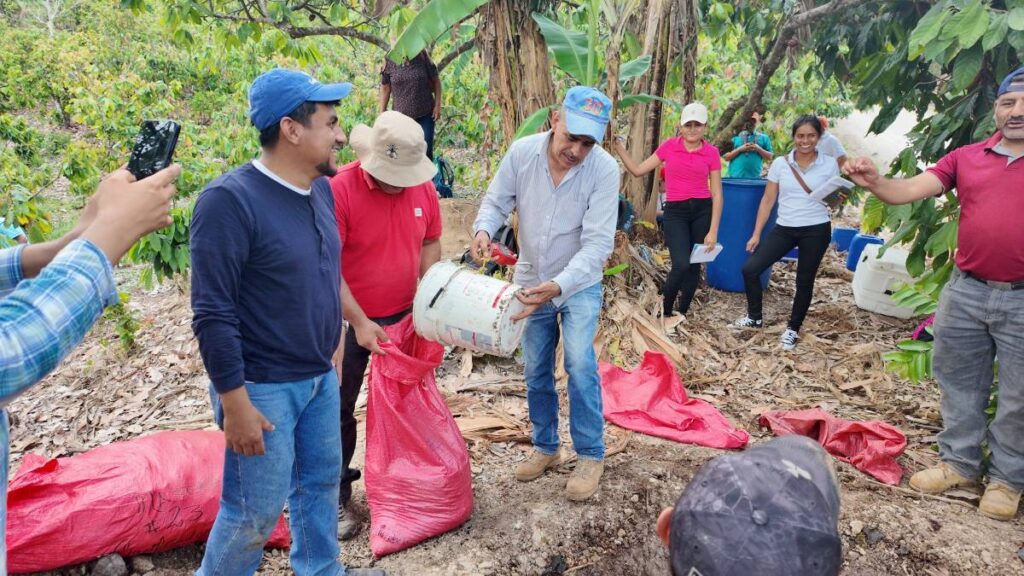
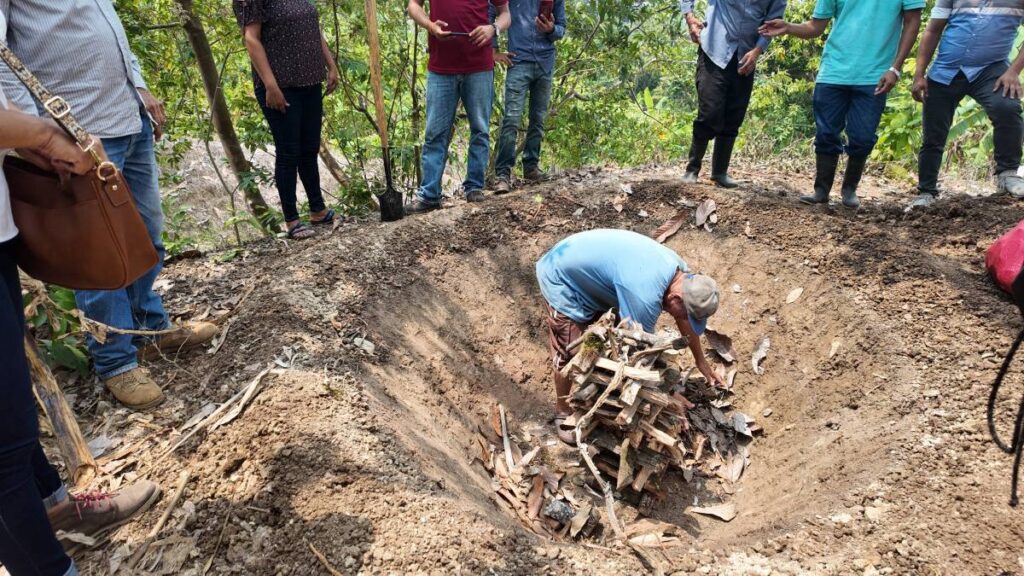
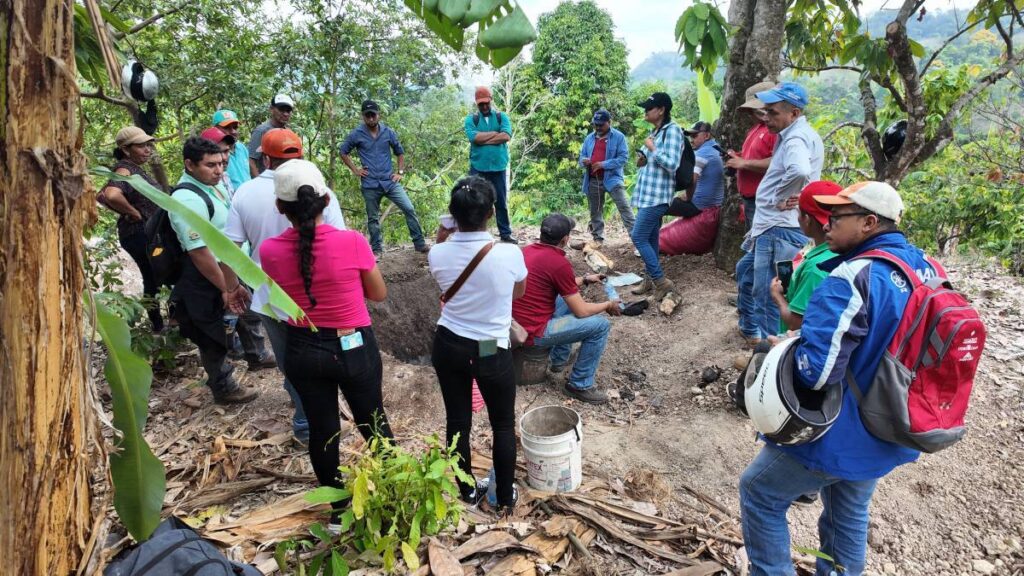
Scaling for impact as a next step
Nicaragua’s pilot projects have proven biochar’s potential. Solidaridad Central America is now developing a minimum viable product for scaling. Our goals are:
- To validate and scale the biochar pilot by expanding to other cocoa- and coffee-growing regions in Mesoamerica.
- To forge new alliances with sustainability-driven companies (traders, chocolatiers, roasters) committed to decarbonizing their supply chains.
- To integrate biochar with other sustainable practices (e.g., agroforestry) to maximize benefits for farmers and supply chains.
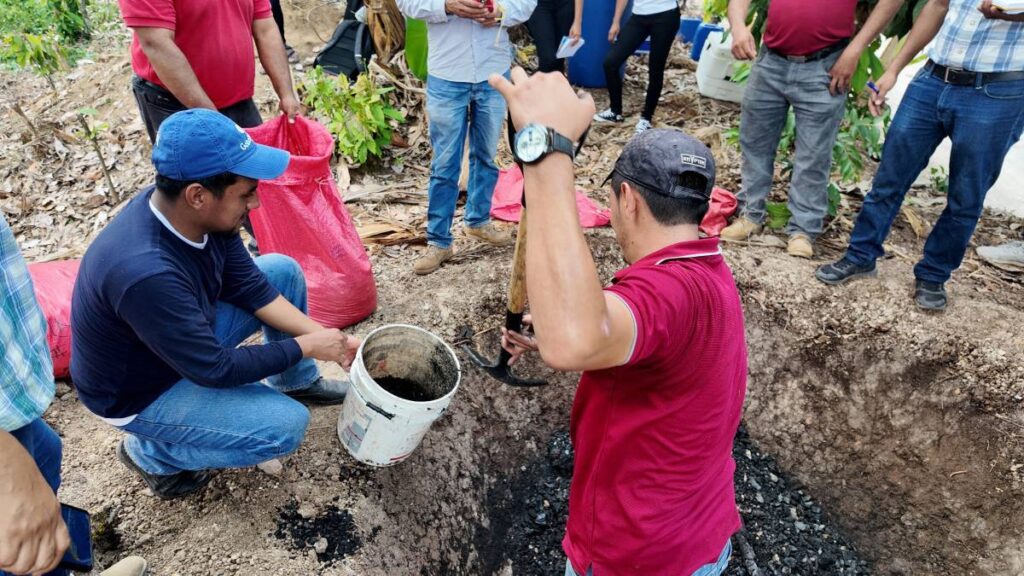
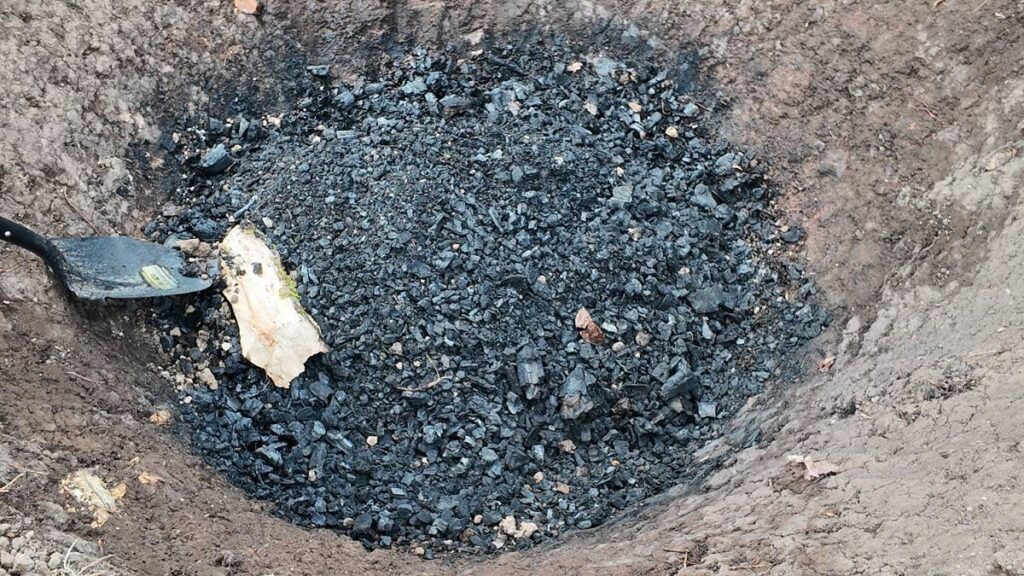
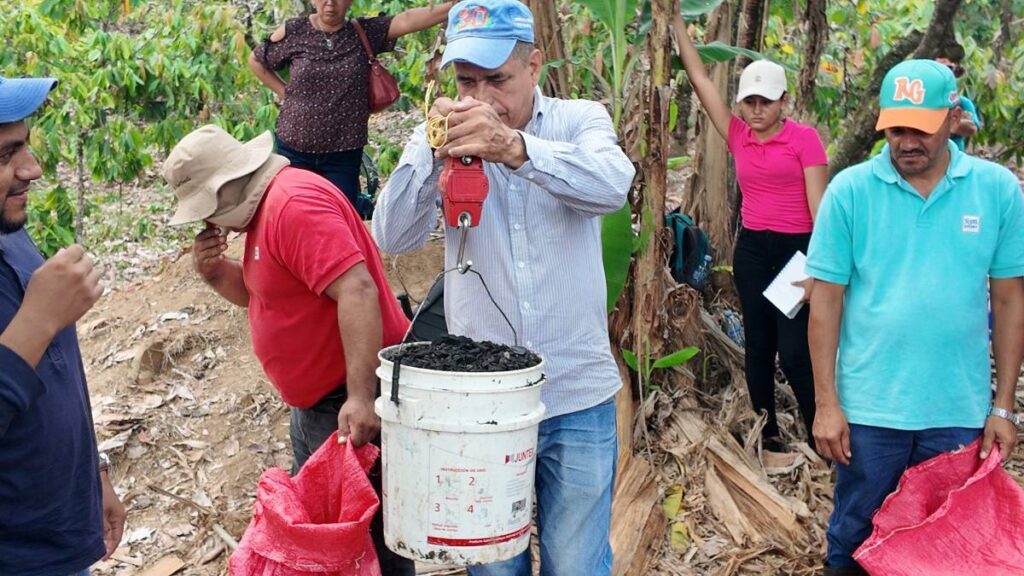
“Our results confirm biochar’s positive impact on cocoa seedlings and mature plants, positioning it as a transformative tool for cocoa farming. We’re laying the groundwork for regenerative agriculture—biochar doesn’t just improve today’s harvests; it ensures productive soils for future generations,” say Elisa Rocha Valdivia, the cocoa programme manager for Solidaridad in Nicaragua.
Whether you’re a producer, researcher, or buyer, please reach out to collaborate on this initiative that merges sustainability, science, and economic opportunity for the benefit of agricultural producers.
Contact: maria.duran@solidaridadnetwork.org

